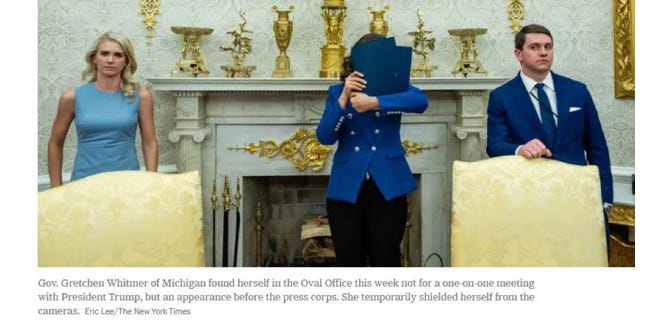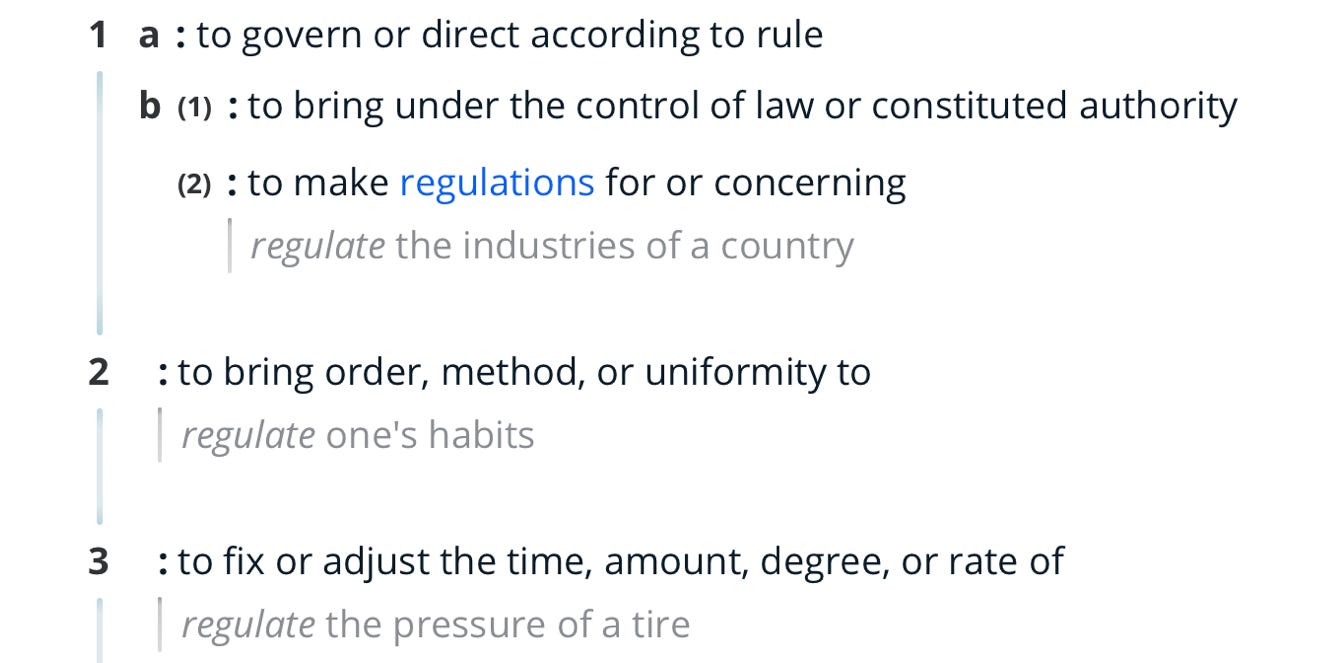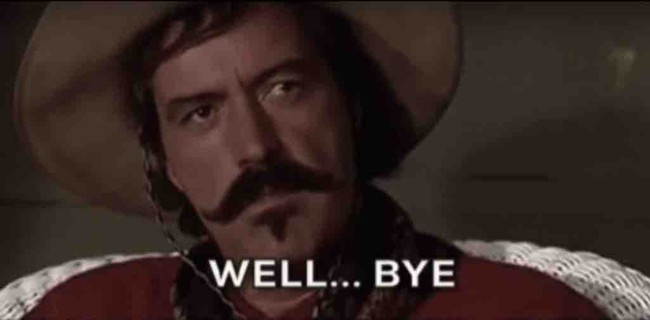
☕️ LITERALLY ☙ Thursday, May 29, 2025 ☙ C&C NEWS 🦠
Court nukes Trump’s tariffs; RFK Jr. targets corrupt journals; DOJ reopens Whitmer, COVID, Dobbs; Rubio bans censors; and Dems keep dying as The Nation calls it—literally—the end. And much more.
Now this is getting ridiculous. The judges just unplugged Trump’s tariff dashboard, right in the middle of a game. Yesterday afternoon, Politico ran the latest judicial disappointment, headlined “Federal court strikes down Trump's tariffs on countries around the world.” Before we go any further, let me just say: Congress needs to do something. Anything! Stage a rally outside the Supreme Court, at least. Even better, do your jobs and pass some laws. But I digress.
This wasn’t the typical court or the typical liberal injunction we’ve grown used to seeing. Eleven progressive states (led by Oregon) filed a lawsuit against Trump’s tariffs in the U.S. Court of International Trade, which is one of a few specialty courts that focus on particularly nettlesome and fouled-up legal areas. The cases are heard by three judges, and in this case, the panel included two Republican appointees (Trump and Reagan), and the 49-page decision was unanimous.
I can only imagine how Trump’s legal team must be feeling. Now what? Not only did the court’s decision completely destroy all the deals currently in the system, and caused Trump to lose all his game progress, but adding gross insult to mortal injury, the order even requires the U.S. to pay back all the tariffs already collected. It’s like the courts are spending their credibility faster than drunken sailors on shore leave in a Thai brothel.
“An injunction would be extremely disruptive while the president is in the middle of foreign negotiations with other countries about trade deficits and about the fentanyl crisis,” Trump’s lawyer argued to the 3-judge panel. They ignored him.
The Constitution explicitly gave Congress the power to set tariffs. The trouble is, modern Congress is slow, ineffectual, and often can’t agree on which party gets the big office at the front of the building, never mind what to do about Chinese fentanyl. So, when countries declare economic war on the U.S., Congress can’t keep up. So over the years, they’ve created various laws and statutes designed to give the president a certain degree of flexibility and power, especially under declared emergencies.
Thus, President Trump has a variety of tariff tools available to him. One of them is a wordily named 1997 statute called IEEPA, which is the one Trump used to build his trade dashboard, and which the three judges in this case found don’t let him set tariffs at all. They wrote a lot, page after mind-numbing page, about predecessor statutes and what happened during Smoot-Hawley and told us all about Nixon’s favorite movie,* but finally got around to the crux, or nub, of their decision, which revolved around interpreting two words.
(* Idiocracy. ** I’m kidding. They didn’t really talk about Nixon’s favorite movie. I know some of you hyper-literalists will ask in the comments.)
Specifically, IEEPA (50 U.S.C. § 1702a1B) gave the President an impressively long list, transitive verb after verb, of powers he may legally deploy to regulate trade. The judges sniffed but it doesn’t say ’levy tariffs.’ Here’s the list: the President may “…investigate, block, regulate, direct, compel, nullify, void, prevent or prohibit… importation… of any property in which any foreign country or a national thereof has any interest.”
Hmmm. The judges decided, absent the word ‘tariff’ itself, the next closest match was “regulate … importation.” But they thought about it very carefully, and finally decided that the word “regulate,” while broad, just isn’t broad enough to include “setting tariffs.” That “decision” was a disaster, and in a sane world, it will get yanked in ten seconds on appeal.
Not only did the judges’ parsimonious definition defy the dictionary, but it defied a predecessor statute (TWEA), which included the exact same language and which presidents used then to set tariffs. As Charlie Brown would say, good grief.
Webster’s online dictionary:

The judges must have known their reasoning was as thin as gas-station toilet paper. So they bolted on a second “but even if” reason. Even if they were wrong, they wrote, they would still strike the tariffs down under the Supreme Court’s “major questions” doctrine, which is a generalized and rarely-used “non-delegation” prohibition against letting Congress assign its Constitutional powers to other branches.
The “major questions” theory was even more suspect and subject to appellate revision than their obsessive-compulsive definition of “regulate.” Politico drily observed, “Ultimately, the case could end up at the Supreme Court.”
From the tone and text, it was obvious that the judges were correct in their concern that Trump is using the tariffs powers to address problems far beyond the declared emergency. After all, what does Great Britain have to do with the fentanyl crisis? But that sort of executive micromanagement, while arguably fair, is the kind of political question that isn’t installed in the judicial wheelhouse.
First off, in Regan v. Wald (468 U.S. 222), the Supreme Court upheld restrictions on travel to Cuba under IEEPA. It said courts should not second-guess executive judgments made under a facially lawful emergency declaration. SCOTUS’s language is worth quoting: “Matters relating to the conduct of foreign relations… are so exclusively entrusted to the political branches… as to be largely immune from judicial inquiry or interference.”
Second, where was all this judicial interest in evaluating whether an emergency was “real” or not during the first painful years of the pandemic? That “emergency” was within the judicial wheelhouse, since it didn’t involve political questions relating to the conduct of foreign relations. But back then, they couldn’t be bothered. Or, how about during the 2020 ‘stolen election’ emergency?
Oh, well.
It’s also worth pointing out that President Trump has plenty of other statutory authority to impose tariffs, and even other non-tariff powers under IEEPA. So even if the Supreme Court cuts off the IEEPA spigot, he can pivot to other, less elegant ways to accomplish the same thing. Beyond tariffs, Trump has plenty of other tools and seems prepared to use them. Yesterday, for example, NBC ran a story headlined, “U.S. will 'aggressively' revoke Chinese students' visas, Rubio says.”
While we wait to see whether the Court of Appeals will overturn this decision, I’d advise the other countries to keep negotiating.
I remain optimistic about Trump’s chances on appeal, but it sure would also be helpful if Congress could weigh in. I realize the GOP lacks the Senatorial firepower to overcome what remains of the filibuster, but maybe it’s time for more nuking.

